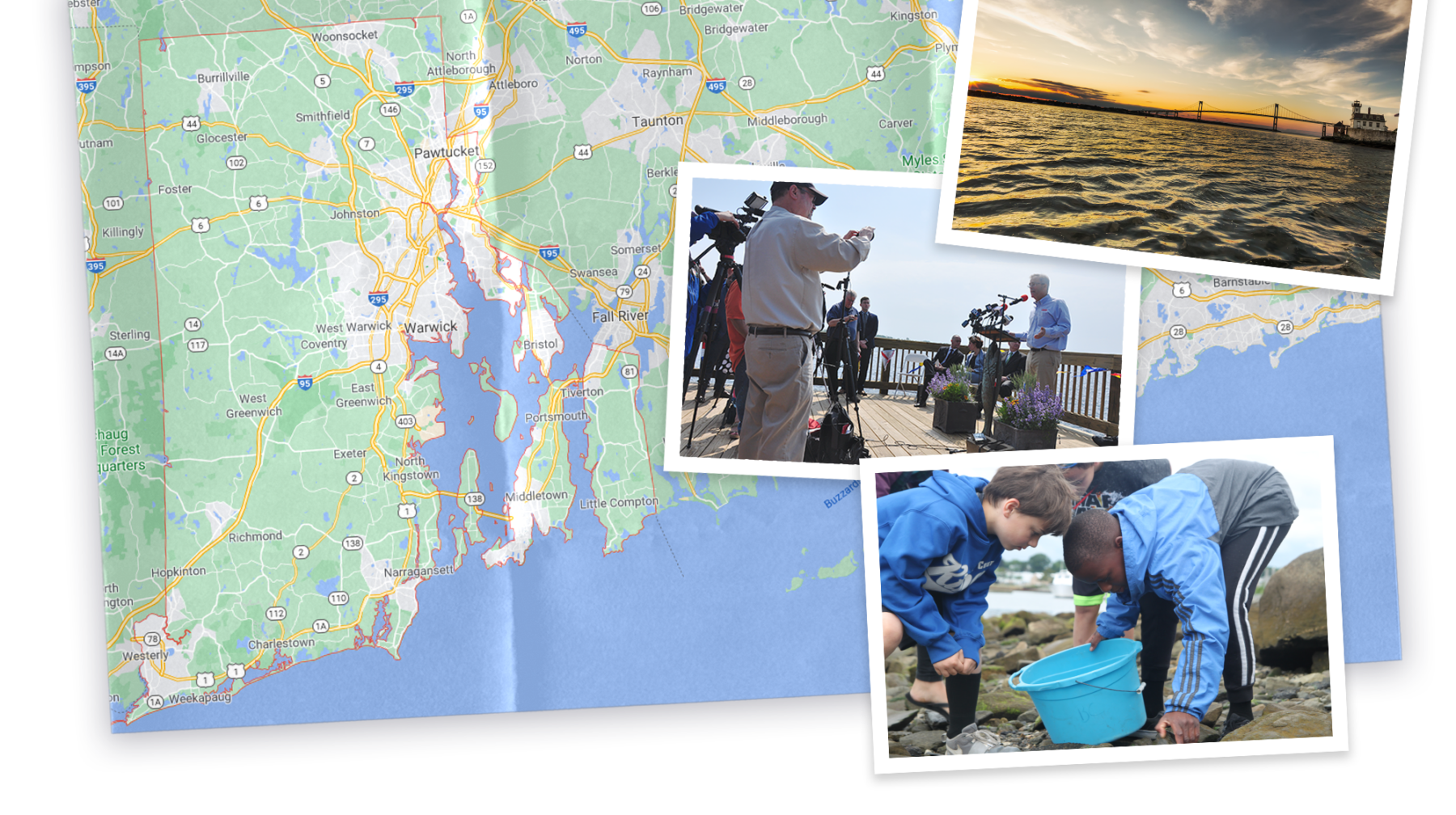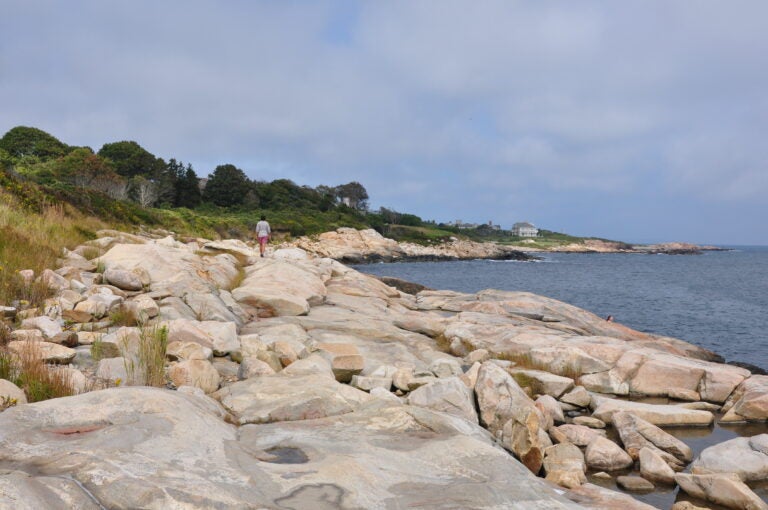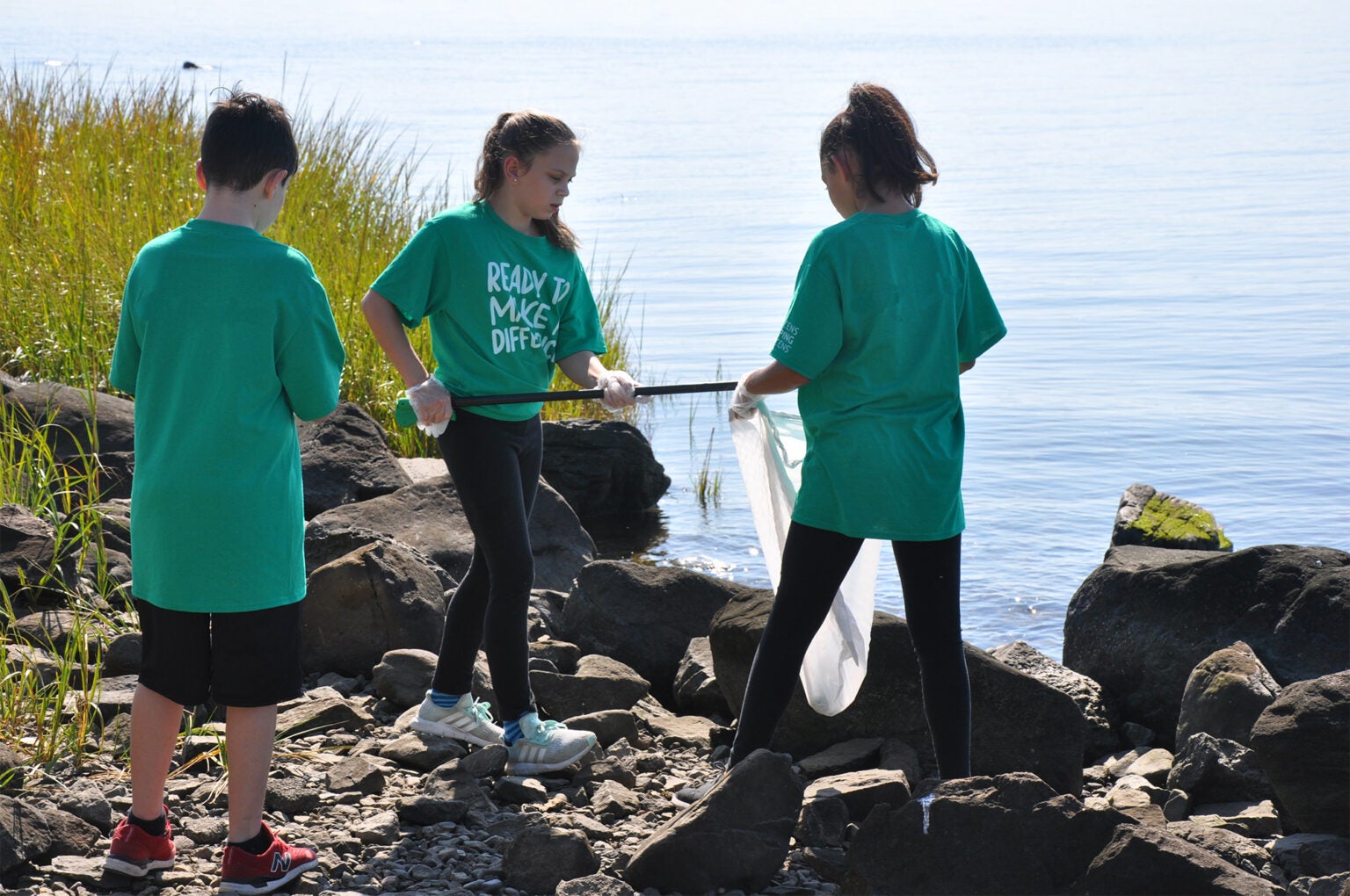
The Newport Bridge, connecting Jamestown and Newport, spans the East Passage of Narragansett Bay, a natural resource Jonathan Stone fights hard to protect for generations of Rhode Islanders.
Photo courtesy of Save the Bay
Sea change
“I think I can say without hesitation that everyone who works at Save the Bay views it as a privilege — we’re doing something we love.”
It isn’t difficult to understand why Rhode Island is called the Ocean State. At just over 1,210 square miles, the smallest state in the nation has a disproportionately massive coastline that runs along the Narragansett Bay for nearly 400 miles.
“If you ask the average Rhode Islander from any part of the state what the most important natural resource is in the state, you’re going to get one answer – Narragansett Bay,” says Jonathan Stone, M.B.A. ’84, executive director of Save the Bay.
With abundant beaches, wildlife habitats, and an ocean that feeds the state’s essential seafood industry, Narragansett Bay brings great benefits to those who live in and visit Rhode Island; it also brings a responsibility to maintain the resource. Save the Bay has worked for 50 years to protect the water, restore habitats, educate the public, and advocate for smarter environmental policies to preserve the bay for generations of Rhode Islanders.
Since 2009, Stone has led the organization, one he has been a part of as a member and volunteer since 1989 because of a love for the ocean and commitment to help protect the resource.
“I think I can say without hesitation that everyone who works at Save the Bay views it as a privilege — we’re doing something we love,” says Stone. “From the receptionist to our educators to me and our policy team — we’re there for the mission, we just care a lot about it. More than that, we all use the resource. We have surfers, swimmers, fishermen, and sailors on staff, and what motivates all of us is getting stuff done. No one is there just to punch a clock.”
While he counts his current job as more rewarding than his time in corporate America, working in manufacturing and finance, Stone does apply what he learned there to running the largest environmental organization in Rhode Island. “My life experience prior to landing at Save the Bay has been informed by interacting with lots of different people in different disciplines and different sectors and figuring out how to connect with them on a level where we can find common ground.”
That approach serves him well as Save the Bay works with cities and towns in Rhode Island and Massachusetts that may not have the capacity to identify and focus on environmental projects.
“It’s up to outside entities like Save the Bay to identify a problem, engage the [municipality] and share how the project will benefit the community,” says Stone. “Then comes the work of cobbling together the funding for everything from feasibility studies and permitting to actual project design, and all of that has to come together and it takes a long time.”


In his work with Save the Bay, Stone is quick to point out that Narragansett Bay is one of the most important natural resources for Rhode Island.
Photos courtesy of Save the Bay

Young volunteers participating in a Save the Bay organized Narragansett Bay clean up project.
Photo courtesy of Save the Bay
Like other nonprofits and businesses, Save the Bay had to modify their operations in response to the COVID-19 pandemic. A major component of their work is environmental education for young people in Rhode Island and Massachusetts; they provide classes to approximately 15,000 kids in both states each year.
Starting in March those classes looked a bit different when Save the Bay’s educators pivoted to producing content they would stream live on their Facebook page. For three months through June, each weekday at 10 a.m. they would host a program called “Breakfast by the Bay,” which allowed viewers to ask questions of the team of experts who work for Save the Bay. Producing this helped them get their feet under them and fine tune their virtual programming, something that will continue to be important as schools in Rhode Island and Massachusetts head back to the classroom in a hybrid in-person and digital model.
Other aspects of their work changed as well. Their volunteer program pressed paused to adhere to social distancing guidelines, their 50th anniversary celebration was postponed to next year, and annual events such as their swim from Jamestown, R.I., to Newport, R.I., pivoted to a digital event where participants completed the miles on their own time.
Stone, who originally joined Save the Bay as a volunteer, noted the undeterred enthusiasm he has felt from their members. Just last month they were able to resume some aspects of their volunteer program with modified safety guidelines, and sent out individuals to participate in their beach clean-up program.
“People are really excited [to volunteer again] — they are chomping at the bit to get outdoors,” says Stone. “Everyone is interested and cares about the natural resource that we have.”




